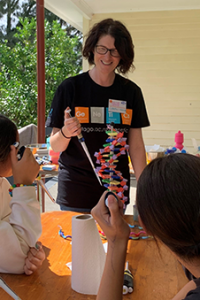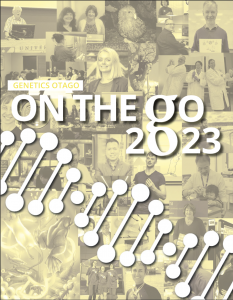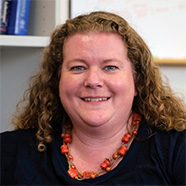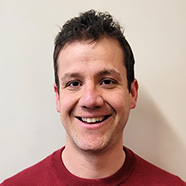Students shine in ‘rare’ essay competition
Fifth-year medical student Gavin Bishop , who has previously worked with Genetics Otago in a science communication capacity, has won the top prize in a 500-word essay competition run by Rare Disorders New Zealand (RDNZ).
Read details of the competition on the Otago Newsroom page and check out Gavin’s winning entry here!
It is great to see an interest and understanding of Rare Disorders in the next generation of healthcare professionals. Congratulations Gavin!
GO Members among HRC Recipients
The Health Research Council has awarded grants to two Genetics Otago Members in its recent funding round.
Dr George Wiggins (Pathology and Biomedical Science (UOC))
Emerging Researcher Grants – $399,992
Advancing breast and ovarian cancer prevention strategies
Women at high-risk of breast and ovarian cancer need new and effective prevention strategies. Traditional options for cancer prevention include risk-reducing surgery, however this strategy is unwanted by many women due to a variety of reasons, such as fertility and menopause concerns. Providing doctors with a non-invasive and easily accessible preventative therapy for women at high risk of developing breast and ovarian cancer would have numerous benefits for the health system (e.g. reduced inequity in health outcomes), and for the patients and their whānau. Through a recent novel discovery in my laboratory, and collaboration with the world leading CIMBA Consortium, I am uniquely positioned to investigate potential novel preventative therapies for women at high-risk of breast and ovarian cancer. This innovative and potentially transformative research programme will provide a step towards reducing cancer diagnoses through the development of personalised preventative treatment(s).
Associate Professor Sara Filoche (Department of Obstetrics, Gynaecology and Women’s Health (UOW))
Explorer Grant – $150,000
Building room for equity: Culture centred design of hospital waiting rooms
Hospitals in Aotearoa New Zealand have a legacy founded in colonialism and are designed to Eurocentric principles of health and well-being – as such they are inequitable by design and represent culturally unsafe spaces for many people who need to access them. Hospital waiting rooms represent one such space. Our project is premised on understanding how physical spaces in hospitals shape people’s experiences of care. Bringing culture centred design to hospital spaces holds potential as a new mechanism to supporting culturally safe healthcare practice. This project realises a new, unique collaboration between healthcare professionals, healthcare scientists, Māori health researchers and an indigenous design agency. It is the first of its kind in Aotearoa. The project will involve communities and health consumers through a kaupapa Māori design process to co-create a re-imagined virtual waiting room and inform healthcare environment design more broadly.
Cause of rare genetic condition discovered
Genetics Otago member Amy Jones (PhD student in the Robertson group) is the lead author of a recently published paper in The American Journal of Human Genetics. The research on Glutamine Synthetase Stabilization Disorder involved an international team of researchers and provides “an excellent example of finely tuned precision medicine”.
Read more via the Otago Newsroom.
Publication details:
Amy G Jones, Matilde Aquilino, Rory J Tinker, Laura Duncan, Zandra Jenkins, Gemma L Carvill, Stephanie J DeWard, Dorothy K Grange, MJ Hajianpour, Benjamin J Halliday, Muriel Holder-Espinasse, Judit Horvath, Silvia Maitz, Vincenzo Nigro, Manuela Morleo, Victoria Paul, Careni Spencer, Alina I Esterhuizen, Tilman Polster, Alice Spano, Inés Gómez-Lozano, Abhishek Kumar, Gemma Poke, John A Phillips III, Hunter R Underhill, Gregory Gimenez, Takashi Namba, and Stephen P Robertson.
American Journal of Human Genetics
Teaching Excellence Award
Congratulations to Genetics Senior Teaching Fellow, Dr Gillian MacKay, on being awarded a University of Otago Excellence in Teaching Award for 2024!
Read more in this Otago Newsroom article.
Antarctica’s coasts are becoming less icy
Genetics Otago Professor Ceridwen Fraser (Department of Marine Science) has led a study on how an increase in pockets of open water in Antarctica’s sea ice (polynyas) may mean coastal plants and animals could one day establish on the continent.
Read more in the Otago Newsroom article.
Publication details
Emerging long-term trends and interdecadal cycles in Antarctic polynyas
Grant A. Duffy, Fabien Montiel, Ariaan Purich, Ceridwen I. Fraser.
Proceedings of the National Academy of Sciences
Zoology Academic joins International Science Council

Distinguished Professor Hamish Spencer is honoured to share his expertise as a Fellow of the International Science Council, supporting their mission to act as the global voice for science.
Genetics Otago member Distinguished Professor Hamish Spencer has received international recognition as a new Fellow of the International Science Council (ISC).
Read more on the Otago Bulletin
On the GO 2023!
Our 2023 magazine is now available, you can access it here, or email go@otago.ac.nz if you would like to have a physical copy sent to you.
Marsden Success!
Congratulations to our members who were successful Marsden Grant recipients in the latest funding round.
Associate Professor Louise Bicknell, Biochemistry
ORC3: A novel disease gene with a moonlighting role in brain development
$941,000
Biological complexity in higher organisms has been achieved in part by proteins taking on new moonlighting roles. While mutations in other ORC subunits cause a global reduction in growth, the team has discovered mutations in ORC3 in patients with a severe neurological disorder. They hypothesise that this clinical and genetic data has uncovered a moonlighting role for ORC3 in the brain, and they will explore this novel function using both in vitro and in vivo approaches. This project has the potential to define a novel disease gene and discover a novel moonlighting function for ORC3 in brain development.
Associate Professor Liz Ledgerwood, Biochemistry
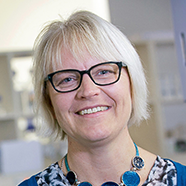
Probing functional protein oligomerisation in the crowded cellular environment
$933,000
A fundamental and widespread driver of protein functional diversity is oligomerisation. Within the crowded cellular environment, changes in oligomeric state will impact how proteins move, where they are localised, and what they interact with. However, most work on protein oligomerisation has used purified proteins, and we have little understanding of how these behaviours relate to function in living cells. By combining the use of live cell fluorescence fluctuation microscopy and oligomeric state-specific protein labelling the researchers will learn how oligomeric state controls function in the context of peroxiredoxins. Peroxiredoxins are proteins that are central to redox metabolism in all aerobic life forms, and switch between dimeric and ring-type decameric structures. As a prototypical example of the relationship between function and structural dynamics, this work will not only provide new insights into peroxiredoxin biology, but will also shed light more generally on whether oligomeric transitions identified in vitro predict in vivo behaviour of proteins.
Dr Nic Rawlence, Zoology
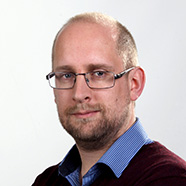
Unlocking the past: a novel approach to quantifying biodiversity loss in the fossil record
$942,000
Accurately distinguishing between living and extinct species in the fossil record relies on the assumption that living species have changed little in the recent past. Preliminary data suggest this key assumption may often be violated, which could lead to overestimates of biodiversity loss and faunal turnover in the geological record across the tree of life. However, these two competing interpretations, and their relative frequency, cannot be distinguished based upon fossil data alone. Dr Rawlence and his teame will resolve this universal challenge by applying a novel geometric morphometric and genetic approach to contemporary and Holocene reptile specimens from New Zealand and New Caledonia.
Dr Simon Jackson, Microbiology and Immunology
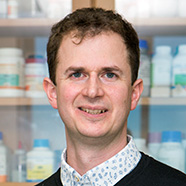
Understanding bacteriophage-pathogen specificity to support phage therapy
$941,000
The use of bacterial viruses (phages) is an emerging approach to treat antimicrobial-resistant bacterial infections, termed phage therapy. A major challenge for phage therapy is that closely related bacteria can differ vastly in their phage susceptibility profiles – highlighted by several recent clinical applications of phages that required screening thousands of phage candidates. Our research aims to understand the genetic basis for phage-bacteria specificity, focusing on immune systems that bacteria use to protect themselves from phages infections. Using new high-throughput genetic screens, Dr Jackson’s team will uncover how phages have evolved anti-immune proteins to evade or inactivate bacterial immunity. We will then discover which bacterial immune systems have evolved to counteract phage anti-immune proteins. Knowledge gained in this research will directly support future genomics-based approaches to developing phage-based therapies for bacterial infections.
And also, to our members who were awarded Fast Start Grants:
Dr Megan Leask, Physiology
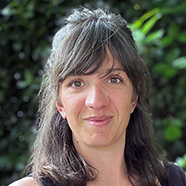
Omics led discovery and in vivo screening of Māori and Pacific immune variation
The human immune system is incredibly diverse and subject to recent population-specific adaptation, yet what we have learnt so far about genetic regulation of immune biology has been restricted to European based datasets. Expanding genetic analyses to Māori and Pacific peoples presents a significant opportunity to: 1. understand novel immune mechanisms in these populations, and 2. address a critical issue in genetics research – inequity of participation of minority populations. Leveraging substantial ‘omics data from Māori and Pacific peoples and a world-first quantitative in vivo enhancer assay, Dr Leask will screen and functionally test a panel of population-specific genetic variants for immune activity. The outcomes of this project will provide mechanistic proof that associated Māori and Pacific variants, genes and metabolites are causal in inflammatory conditions, revealing biology that can immediately proceed to drug development.
The information gained here in this research will also be incorporated into the Genomics Aotearoa projects Rakeiora and Variome, critical to the implementation of genomic based medicine into the healthcare system of Aotearoa. This research will contribute to capacity building in Māori and Pacific genetics and is the step change required for equitable access to precision medicine in Aotearoa.
Dr Leah Smith, Microbiology and Immunology
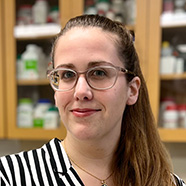
The influence of bacterial dormancy – Uncovering factors that affect phage-biofilm interactions
Viruses that infect bacteria (phages) represent a potential strategy towards combating antibiotic-resistant infections. However, a greater understanding of fundamental phage-bacterial interactions is needed to inform on applied therapies. In both nature and clinical settings, bacteria predominantly exist as biofilm aggregations where cell metabolism ranges from active to dormant. Most phage characterization has been performed using metabolically active bacteria, ignoring the complexity of the biofilm state. Dr Smith will use directed evolution and sequencing to identify phage factors that facilitate dormant cell infection and assess phage-biofilm interactions using single-cell analyses. This research will guide selection of phage characteristics to improve therapeutic outcomes.
Dr Ludovic Dutoit, Zoology
Harnessing the power of hybrids to resolve the role of gene expression in evolution
Understanding the way organisms adapt to change is a fundamental goal of biology. Genetic changes happen at two levels: in the underlying DNA code of proteins or in the DNA code that regulates how much of a given protein is produced. Knowledge of this regulation process is limited. Dr Dutoit’s team will use hybrids of two species of New Zealand short-horned grasshopper and game-changing genomic approaches to disentangle the relative role of the different regulatory elements. Their study is well-placed to revolutionise the understanding of gene-expression evolution, improving the way we understand biological adaptation in our changing world.
When cheating pays – survival strategy of insect uncovered
Recently published work by GO members Brodie Foster, Graham McCulloch, Yasmin Foster, Gracie Kroos, Tania King and Jonathan Waters shows that a NZ insect has developed a unique ‘cheating’ strategy to avoid being eaten by mimicking a highly toxic species.
Read more on the Otago Bulletin or see publication details below:
ebony underpins Batesian mimicry in melanic stoneflies
Brodie J. Foster, Graham A. McCulloch, Yasmin Foster, Gracie C. Kroos, Tania M. King, Jonathan M. Waters
Molecular Ecology
Otago University-led research delivers more certainty for genetic test diagnoses
Genetics Otago co-director Associate Professor Logan Walker has led an international study, which also includes Genetics Otago member Dr George Wiggins, to improve RNA diagnostics for laboratories worldwide.
You can read more about this breakthrough on the Otago Bulletin.
Publication details
Logan C. Walker, Miguel de la Hoya, George A.R. Wiggins, Amanda Lindy, Lisa M. Vincent, Michael T Parsons, Dafodil M Canson, Dana Bis-Brewer, Ashley Cass, Alexander Tchourbanov, Heather Zimmermann, Alicia B Byrne, Tina Pesaran, Rachid Karam, Steven Harrison, and Amanda B Spurdle
The American Journal of Human Genetics, Vol. 110, No. 7, pp.1046-1067, July 06, 2023

